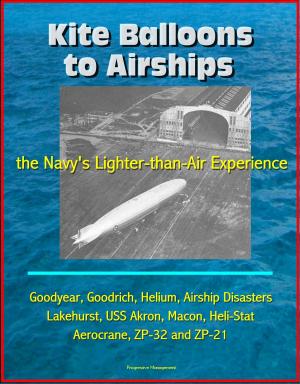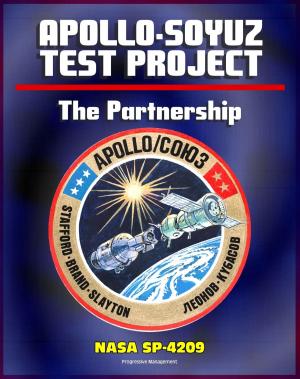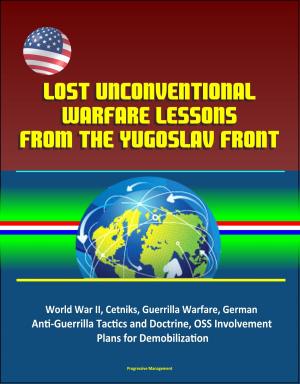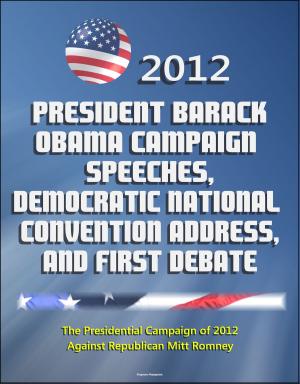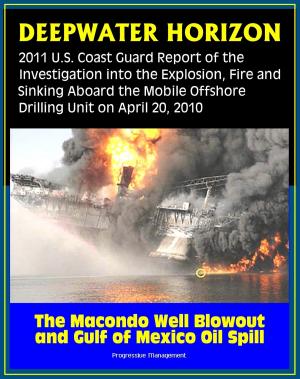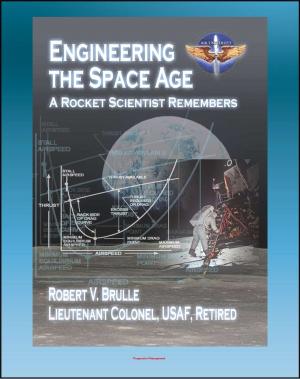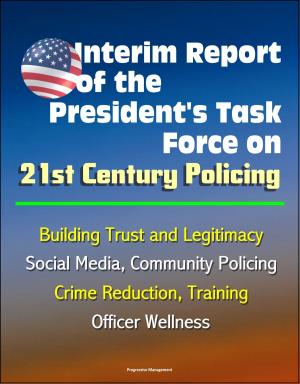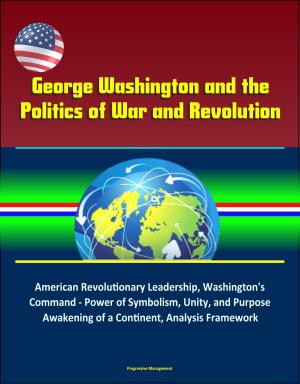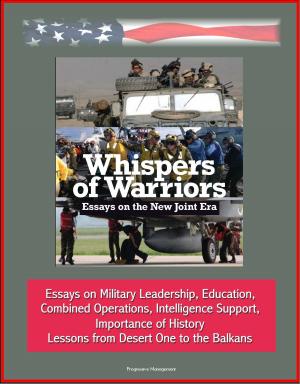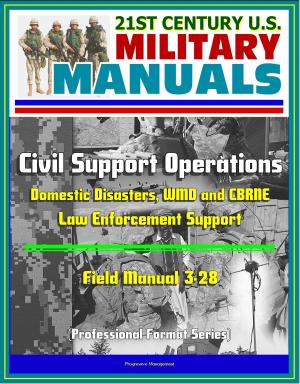The Intelligence Revolution: A Historical Perspective - Evaluation of Military Intelligence Transformations Resulting from World War II, European and Pacific Theaters, Japanese and Soviet Intel
Nonfiction, History, Military, World War II| Author: | Progressive Management | ISBN: | 9781311297822 |
| Publisher: | Progressive Management | Publication: | April 11, 2015 |
| Imprint: | Smashwords Edition | Language: | English |
| Author: | Progressive Management |
| ISBN: | 9781311297822 |
| Publisher: | Progressive Management |
| Publication: | April 11, 2015 |
| Imprint: | Smashwords Edition |
| Language: | English |
Professionally converted for accurate flowing-text e-book format reproduction, this unique book presents essays and commentaries about military intelligence after World War II. It is commonplace within and outside the intelligence community to acknowledge the predominant role of technology in the collection, dissemination, and even analysis of information. With roots traceable to events in the late 1800s, this technological phenomenon loomed ever larger in the twentieth century. The increasing reliance on photographic, signals, and electronic intelligence has been viewed with varying degrees of celebration and concern by scholars and intelligence professionals. This volume contains the essays and commentaries originally presented at the Thirteenth Military Symposium held to address this topic at the United States Air Force Academy. The participants in the conference attempted to provide a preliminary evaluation of the transformations that have occurred within the military intelligence community as a consequence of the Second World War. Not only did that conflict accelerate advances in technical means of collection, it also led to an international willingness to share intelligence on an unprecedented scale. The years 1939-1945 therefore witnessed a true "revolution" in intelligence collection and cooperation. That war also caused an interrelated growth in organizational size, efficiency, and sophistication that helped gain the craft of intelligence an acceptance in operational circles that it had not previously enjoyed.
Thirty-first Harmon Memorial Lecture in Military History * World War II: An Intelligence Revolution * Harry Hinsley * Session I * The Origins of Modern Intelligence * Chair: Ernest R. May * Intelligence on the Eve of Transformation * Dennis E. Showalter * Military Intelligence Sources during the American Civil War * Peter Maslowski * Comments * Ernest R. May * Session II - The Intelligence Revolution * World War II * The European Theater * Chair: Gerhard L. Weinberg * Radio Intelligence in the Battle of the Atlantic * Jurgen Rohwer * Intelligence Collaboration Between Britain, the United States, and the Commonwealth during World War II * Christopher Andrew * Soviet Operational Intelligence * Col. David Glantz, USA * Comment * Gerhard L. Weinberg * Session III - The Intelligence Revolution * World War II * The Pacific Theaters * Chair: Roger Dingman * Japanese Intelligence in the Pacific Theater * Alvin D. Coox * Japanese Intelligence Estimates of China, 1931 - 1935 * Hisashi Takahashi * Comments * Roger Dingman * Session IV - The Legacy of The Intelligence Revolution * Chair: Walter Laqueur * Satellite Reconnaissance * William E. Burrows * The Intelligence Revolution's Impact on Postwar Diplomacy * John L. Gaddis * USAF Intelligence in the Korean War * Robert Frank Futrell * Comments * Walter Laqueur * Session V - The Impact of the Intelligence Revolution on Current Military Posture * Chair: Ray S. Cline * Remarks by a Select Panel * Richard Helms * General James A. Williams, USA * Admiral Pierre Lacoste * Maj. Gen. Jack E. Thomas, USAF * Banquet Session * Intelligence, Counterintelligence, and Glasnost * Lt. Gen. Samuel V. Wilson, USA * A Concluding Comment * Retrospect on the Conference * Harold Deutsch * Contributors
Professionally converted for accurate flowing-text e-book format reproduction, this unique book presents essays and commentaries about military intelligence after World War II. It is commonplace within and outside the intelligence community to acknowledge the predominant role of technology in the collection, dissemination, and even analysis of information. With roots traceable to events in the late 1800s, this technological phenomenon loomed ever larger in the twentieth century. The increasing reliance on photographic, signals, and electronic intelligence has been viewed with varying degrees of celebration and concern by scholars and intelligence professionals. This volume contains the essays and commentaries originally presented at the Thirteenth Military Symposium held to address this topic at the United States Air Force Academy. The participants in the conference attempted to provide a preliminary evaluation of the transformations that have occurred within the military intelligence community as a consequence of the Second World War. Not only did that conflict accelerate advances in technical means of collection, it also led to an international willingness to share intelligence on an unprecedented scale. The years 1939-1945 therefore witnessed a true "revolution" in intelligence collection and cooperation. That war also caused an interrelated growth in organizational size, efficiency, and sophistication that helped gain the craft of intelligence an acceptance in operational circles that it had not previously enjoyed.
Thirty-first Harmon Memorial Lecture in Military History * World War II: An Intelligence Revolution * Harry Hinsley * Session I * The Origins of Modern Intelligence * Chair: Ernest R. May * Intelligence on the Eve of Transformation * Dennis E. Showalter * Military Intelligence Sources during the American Civil War * Peter Maslowski * Comments * Ernest R. May * Session II - The Intelligence Revolution * World War II * The European Theater * Chair: Gerhard L. Weinberg * Radio Intelligence in the Battle of the Atlantic * Jurgen Rohwer * Intelligence Collaboration Between Britain, the United States, and the Commonwealth during World War II * Christopher Andrew * Soviet Operational Intelligence * Col. David Glantz, USA * Comment * Gerhard L. Weinberg * Session III - The Intelligence Revolution * World War II * The Pacific Theaters * Chair: Roger Dingman * Japanese Intelligence in the Pacific Theater * Alvin D. Coox * Japanese Intelligence Estimates of China, 1931 - 1935 * Hisashi Takahashi * Comments * Roger Dingman * Session IV - The Legacy of The Intelligence Revolution * Chair: Walter Laqueur * Satellite Reconnaissance * William E. Burrows * The Intelligence Revolution's Impact on Postwar Diplomacy * John L. Gaddis * USAF Intelligence in the Korean War * Robert Frank Futrell * Comments * Walter Laqueur * Session V - The Impact of the Intelligence Revolution on Current Military Posture * Chair: Ray S. Cline * Remarks by a Select Panel * Richard Helms * General James A. Williams, USA * Admiral Pierre Lacoste * Maj. Gen. Jack E. Thomas, USAF * Banquet Session * Intelligence, Counterintelligence, and Glasnost * Lt. Gen. Samuel V. Wilson, USA * A Concluding Comment * Retrospect on the Conference * Harold Deutsch * Contributors


